Backlog Refinement Cards: Use the Benefits of Gamification for Backlog Refinement
Backlog Refinement Cards are a novel tool that gamifies the process of backlog refinement in Agile software development.
Join the DZone community and get the full member experience.
Join For FreeIn the landscape of Agile software development, backlog refinement stands as a cornerstone of project success. This process, which involves the prioritization, often estimation and decomposition of work into manageable pieces, is fundamental for effective sprint planning and efficient project execution. An innovative tool known as the Backlog Refinement Cards has been created to give a new gamified option to this process. Designed to decrease the complexity and size of backlog items before implementation, these cards are a game-changer in enhancing project predictability.
Gamification in Backlog Refinement
In Agile project management, the application of gamification techniques (like Dependency Poker), as seen with Backlog Refinement Cards, has yielded significant benefits. These cards introduce a fun, competitive, and collaborative element to the backlog refinement process, which helps to harness the collective wisdom of the team, ultimately resulting in more reliable and realistic project forecasts.
Improved Forecasts
By utilizing Backlog Refinement Cards, team members independently examine and break down tasks into smaller, manageable pieces. This process minimizes bias and undue influence, resulting in balanced and insightful estimates. This approach significantly enhances the predictability and forecastability of the project by providing a granular view of tasks. This improved forecasting aids in superior project planning and resource allocation, offering a distinct advantage in project management.
Efficiency and Focus
Backlog Refinement Cards facilitate an efficient process to refine and break down work. The game-like structure keeps the process engaging, and the focus on each card ensures the refinement process stays concise and on track. This focused approach leads to efficient use of time and resources.
Team Building
These cards do more than just support refining tasks; they serve as a team-building exercise, encouraging open communication and mutual respect among team members. The improvement in overall team dynamics is a valuable benefit that extends beyond the project at hand.
Visibility and Transparency
Backlog Refinement Cards provide visibility into how team members think about work and effort, leading to greater transparency. They allow different perspectives to surface and promote a shared understanding of the project’s scope and potential challenges. This transparency is crucial for effective collaboration and decision-making.
Enhanced Understanding and Collaboration
Encouraging active participation from all team members, each card prompts consideration of different aspects of the backlog item. This triggers discussions about the item's complexities and potential challenges, enhancing the team's understanding of the task and fostering a collaborative environment.
The Backlog Refinement Cards apply the concept of serious gamification, mirroring successful implementations seen in agile methodologies, such as Planning Poker. Each card proposes a distinct approach for backlog refinement, prompting thorough discussions and informed decision-making about task management. The competitive aspect fostered by these cards motivates team members, promoting a culture of continuous learning and improvement. This utilization of gamification ultimately makes the backlog refinement process more enjoyable, engaging, and inspiring while providing tangible benefits to the project and the team.
The Cards
Each card in the deck represents a unique perspective on the next backlog refinement step. Here are 10 out of the 30 cards.
|
Job Shadowing
|
Hypothesis
|
Create a Spike | Pair Programming |
Interviewing an Expert
|
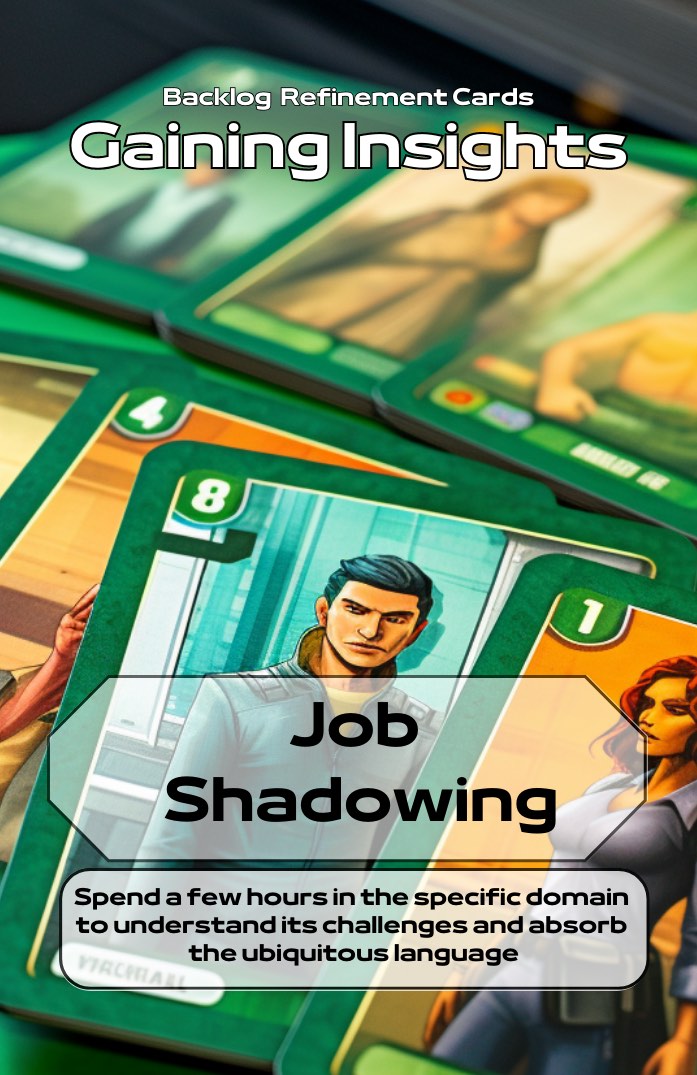 |
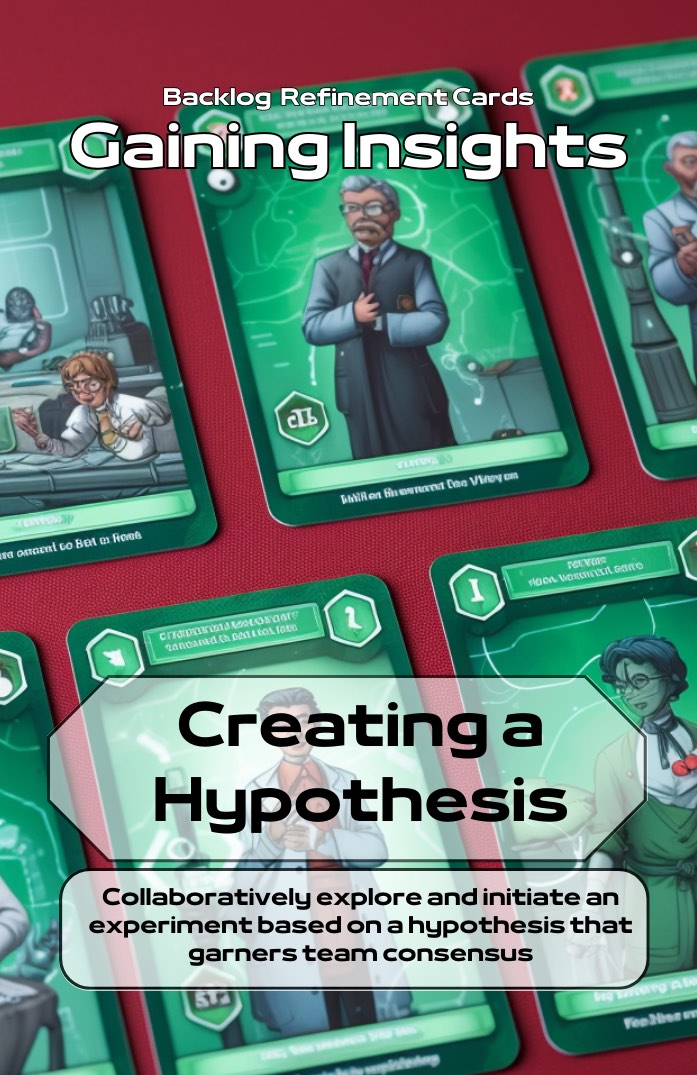 |
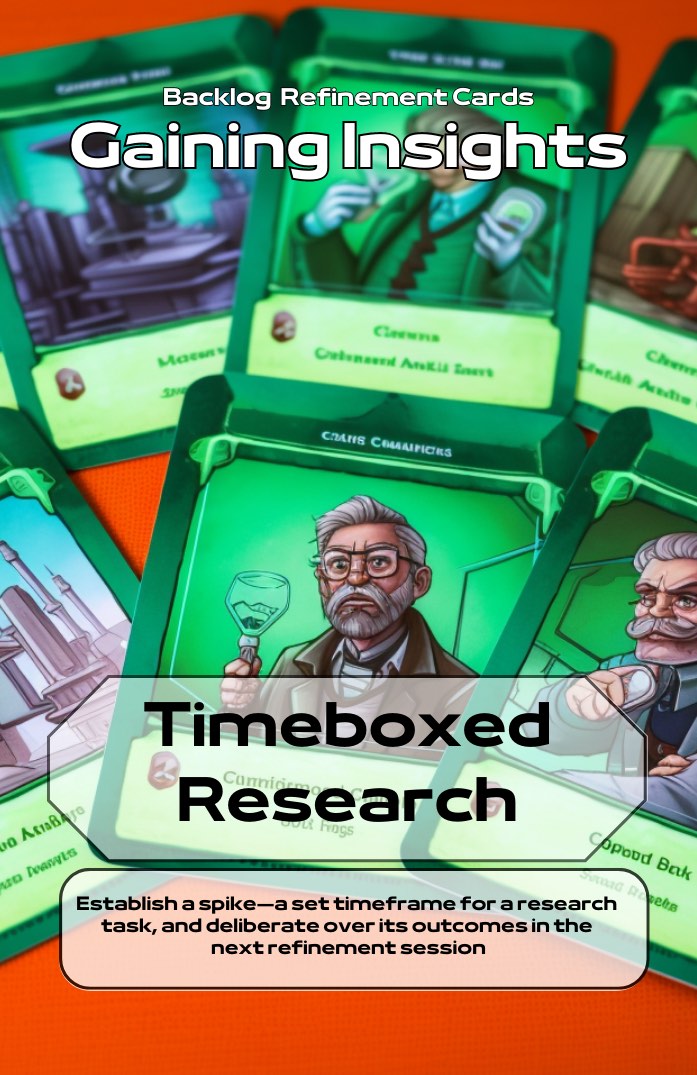 |
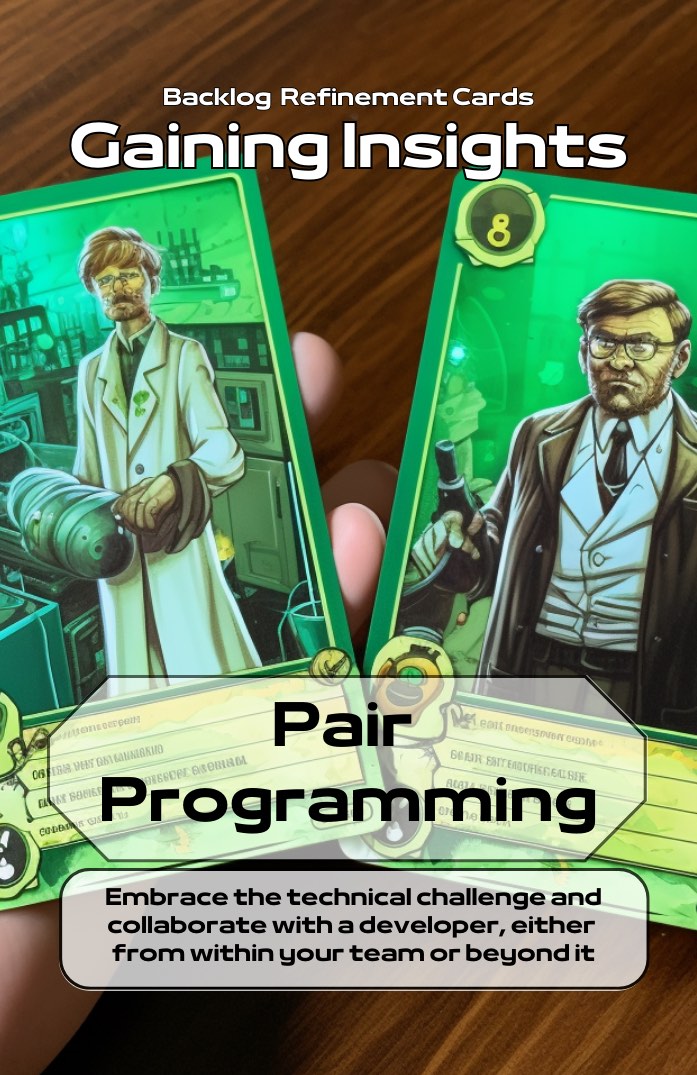 |
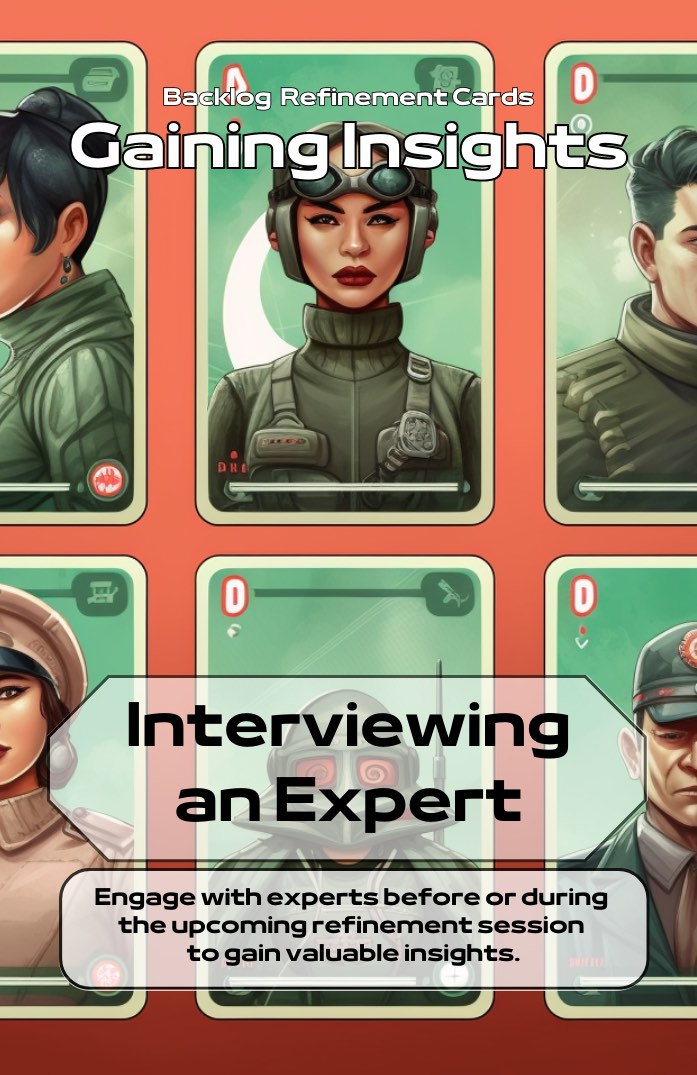 |
|
Enhances understanding of tasks, challenges, and workflows, which leads to more accurate task decomposition and estimation
|
Stimulates critical thinking by encouraging educated assumptions about a feature's potential impact
|
Allows for uncertainty and risk reduction by exploring ideas or answering questions via spikes
|
Promotes code quality and knowledge sharing, resulting in more effective task allocation and estimation
|
Provides insights and clarifications that increase understanding of backlog items and their interdependencies
|
|
Attending Meetings
|
Splitting by Happy Paths
|
Splitting by User Roles
|
Splitting by Channels
|
Splitting by Domains
|
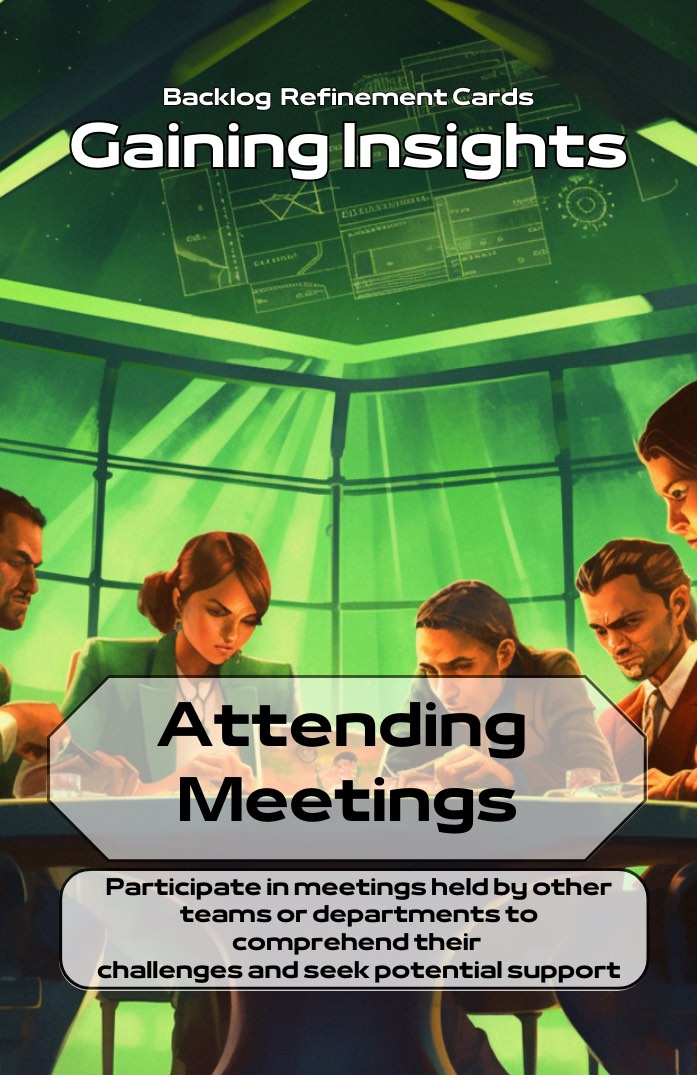 |
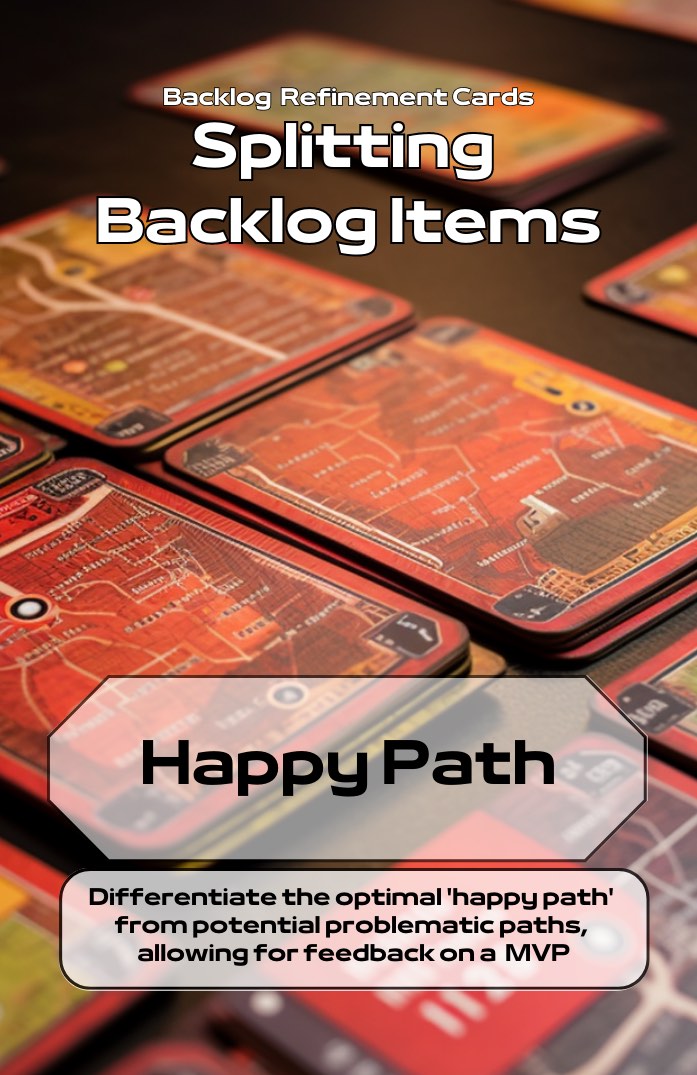 |
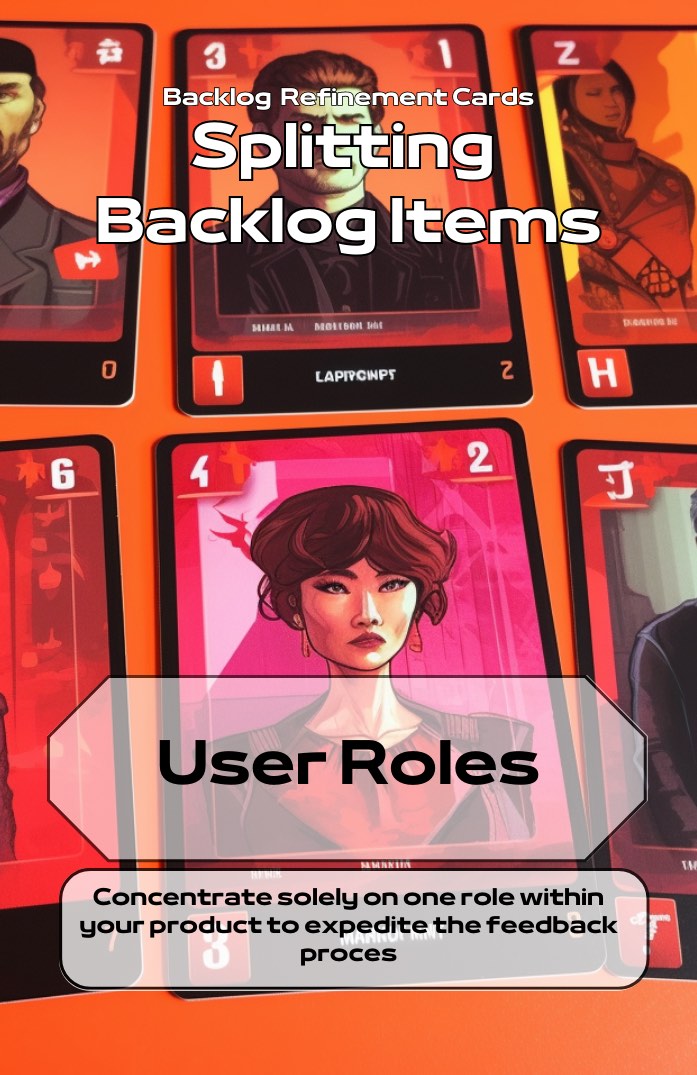 |
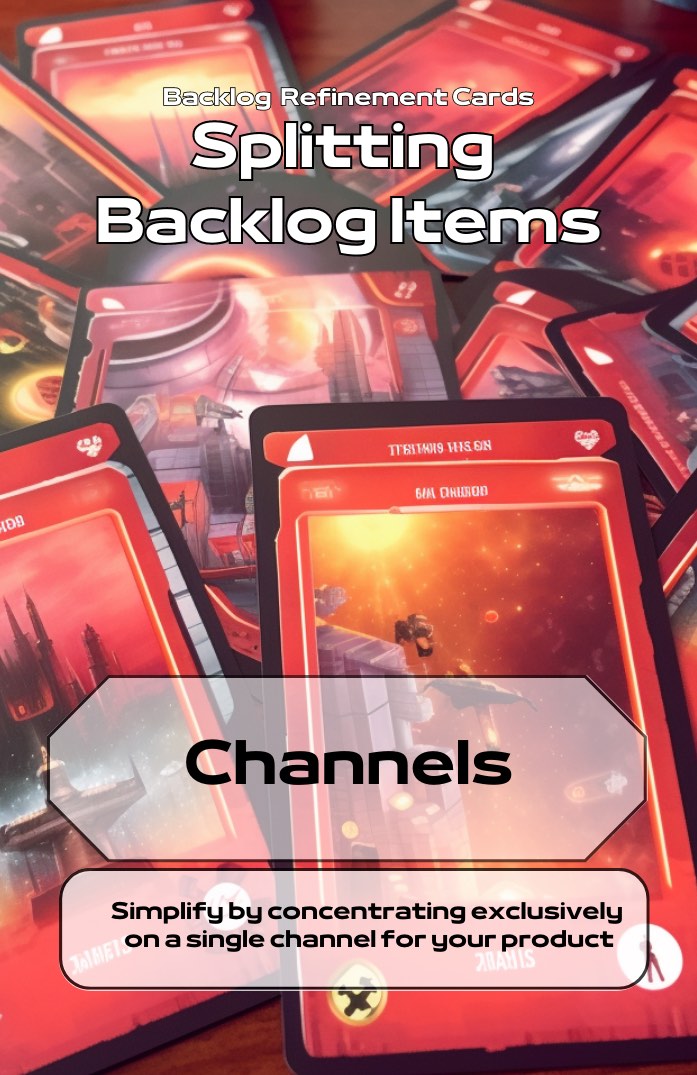 |
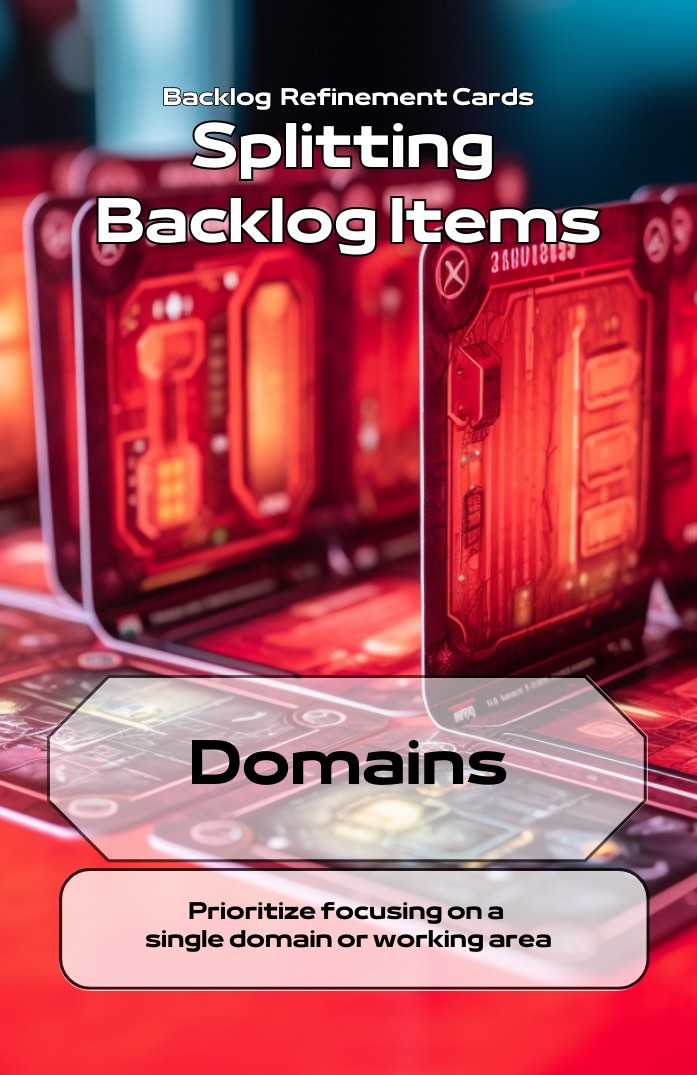 |
|
Improves communication and shared understanding, leading to more accurate backlog refinement
|
Allows teams to focus on the core functionality first, simplifying the management of the backlog
|
Allows the team to focus on items based on defined User Roles.
|
Enables the efficient management of functionalities across multiple channels
|
Facilitates task management by segregating them into different application areas or services
|
Accessibility and Implementation
The Backlog Refinement Cards are freely accessible to everyone, whether for private use or within organizations and companies. It is, however, required to acknowledge their origin when using these cards. Available in a ready-to-use PNG format, these cards are all set to improve your backlog refinement process.
In summary, Backlog Refinement Cards provide a novel and engaging method for the backlog refinement process. By decomposing backlog items into smaller units, teams can more accurately predict the time and effort required for each task, enhancing overall project predictability. Integrating gamification principles inspires teams to collaborate and engage in more creative problem-solving, leading to more effective backlog refinement and, ultimately, smoother project execution.
Opinions expressed by DZone contributors are their own.

Comments